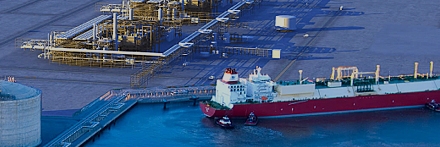To achieve its 2023 target of ensuring local refineries operate optimally, the Federal Government has said it has begun the overhauling of the facilities, commencing with the Port Harcourt refinery.Giving itself a three-year deadline, the Nigerian National Petroleum Corporation (NNPC), said it plans to review operations of the refineries, support condensate plants, and open the midstream sector.
Indeed, the nation’s four refineries recorded operation of just 5.55 per cent of their combined nameplate capacity of around 445,000 barrels per day (b/d), according to data released in late Ma,y by the NNPC, underlining that the oil-rich nation still relies heavily on imports for its fuel needs. Nigeria’s refineries, which include the northern Kaduna refinery and two plants located in Port Harcourt, and the Warri refinery, have not operated beyond a quarter of their nameplate capacity for some time, mainly due to sabotage attacks on pipelines carrying crude to the plants as well as technical problems after years of neglect.
“Thus, we require more investment to revamp and expand our domestic refineries and associated infrastructures to support the growth of the downstream sector and guaranty energy security to the nation. In this respect, NNPC under my purview would leave no stone unturned to ensure our 445,000-barrel refineries in Port Harcourt, Warri, and Kaduna work to an appreciable level or capacity.
“We are progressing with the establishment of condensate refineries to fast-track domestic supply of petroleum products. In the same vein, the corporation would support the actualisation of the 650Kbbl/day Dangote Refinery, as well as other private initiatives along this line. Our plan is for Nigeria to become a net exporter of petroleum products by 2023,” he said.Kyari, however, emphasised the need for an enabling environment to attract the right investment that is being subdued by the nation’s fiscal regimes.
According to him, the Petroleum Industry Bill (PIB), must run its full cycle this 9th National Assembly, implying that there is an absolute need to fast track its enactment processes. “Related to this is the fact that we need to build on the security of the nation’s Industry assets across the country. As stakeholders in the commonwealth, we must ensure we keep away miscreants from our pipelines to pave the way for efficient operations in the sector,” he added.
On his part, the Chairman, Oil Producers Trade Section (OPTS), and Managing Director of ExxonMobil Nigeria, Paul McGrath, expressed concerns about the cost of doing business in the country, adding that security costs were escalating.McGrath urged government and operators to explore modalities and mechanisms for cost reduction, while advocating stable and competitive fiscal policies and a healthy contract integrity culture.
Source: The Guardian – https://guardian.ng/business-services/fg-to-overhaul-refineries-for-three-years-to-drive-local-production/





